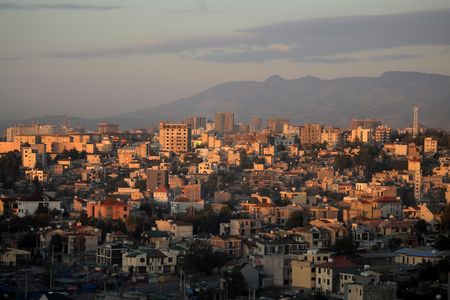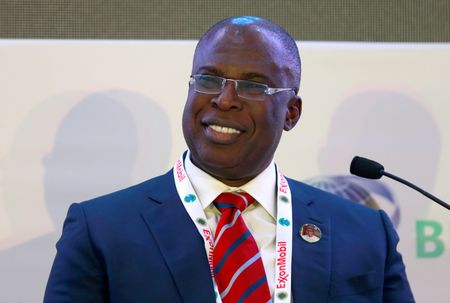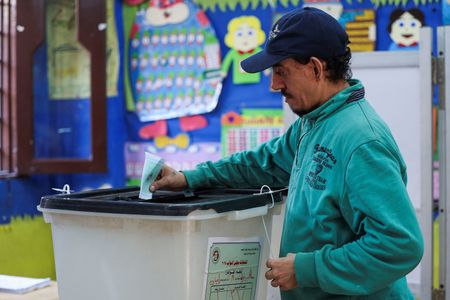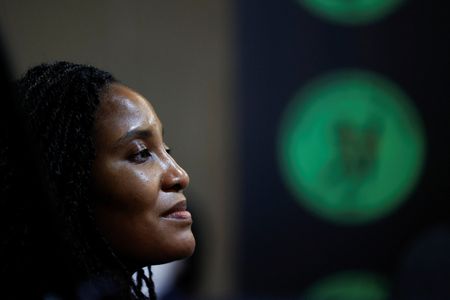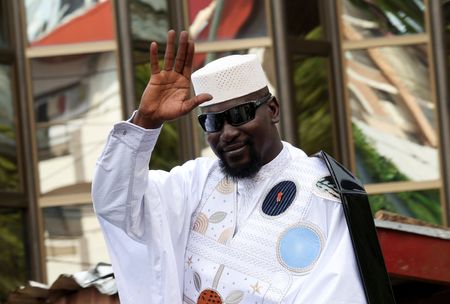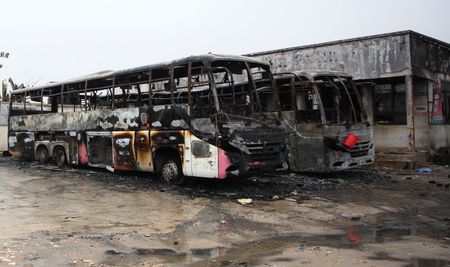By Nellie Peyton
JOHANNESBURG (Reuters) – Twenty-five victims’ families and survivors of apartheid-era political crimes have sued South African President Cyril Ramaphosa and his government for what they say is its failure to properly investigate those offences and deliver justice.
The group is seeking about 167 million rand ($9 million) in damages, according to the case filed at the High Court in the capital Pretoria on Monday, and shared by the Foundation for Human Rights, an NGO supporting the families, on Thursday.
They are also seeking an order compelling Ramaphosa to create a commission of inquiry into the “political interference that resulted in the suppression of several hundred serious crimes arising from South Africa’s past,” according to a statement released by the applicants.
A spokesperson for Ramaphosa said his legal team would respond to the court papers accordingly and that the president had never interfered with the work of law enforcement agencies or directed them not to prosecute apartheid-era crimes.
South Africa was ruled by a white minority government for decades, enforcing institutionalised racial segregation, before becoming a multi-racial democracy in 1994.
The African National Congress (ANC) has governed since then but last year was forced to share power with smaller parties after losing its majority in a national election.
The first applicant in the case is Lukhanyo Calata, the son of Fort Calata, one of four anti-apartheid activists known as the “Cradock Four” who were killed in 1985.
No one has been prosecuted over the case, and a third inquest is due to start this year, but many key figures linked to the killings have died, the statement said.
“Justice delayed in this manner has ensured that justice is permanently denied to our families,” Calata said.
The other applicants include two survivors of the 1993 Highgate Massacre in which a group of masked men shot dead five patrons at a hotel bar, and the family members of other anti-apartheid activists who were killed or disappeared.
South Africa set up its Truth and Reconciliation Commission (TRC) in 1996 to help uncover human rights violations perpetrated under apartheid. After it ended in 2002, the TRC handed over a list of several hundred cases to state prosecutors for further investigation, but many were never pursued.
“The suppression of post-TRC accountability efforts has led to the loss of witnesses, perpetrators and evidence, making prosecutions impossible in most cases and denying survivors and victims’ families rights to justice, truth, and closure,” said Odette Geldenhuys, a lawyer representing the applicants.
The compensation sought is in the form of “constitutional damages”, awarded when a court rules that there have been infringements of constitutional rights by the state.
($1 = 18.5640 rand)
(Reporting by Nellie Peyton; editing by Tannur Anders and Mark Heinrich)


